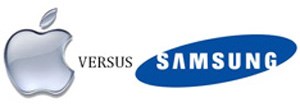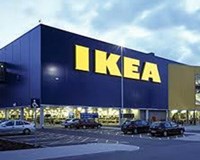
Subscribe & Follow
Jobs
- Senior Brand Designer Cape Town
- Brand Manager Midrand
- Experienced 3D Generalist/VFX Artist Johannesburg
- Multimedia Motion Designer Johannesburg
- Brand Promoter Nelspruit
- Brand Ambassador Paarl
- Brand Strategist - Agency Johannesburg
Know what makes your brand succeed - or not
The Apple brand "decline" has been predicted by industry commentators since the death of Steve Jobs.
To know how to keep brand loyalty high, a brand owner needs to know what it does that resonates so well with consumers. Unless the owner knows exactly, it is rather difficult to keep on pursuing it. Generally, if it does that well, it will also retain its edge in profitability.
However, most brands wax and wane, and often brand owners do not know what to do to prevent it.

In brand terms, this is not unique. Iconic brands like Sony, Braun, Bang & Olufsun, Phillips and many others, have seen their own statures grow and diminish over time. It seems consumer electronics brands are more exposed to such volatility, as fast moving consumer goods brands retain a far higher degree of consistency (albeit being in more "boring" industries). Yet, even in "boring" industries, brands like Gillette and Lindt have been highly successful at innovating and creating consumer interest.
Why has a brand like Sony, once an icon of innovation under Akia Morita and his successors, become pedestrian? Sony was responsible for the Sony Walkman, CD player, DVD player, Trinitron and Bravia television sets... and almost dominated gaming at one point. Sony was truly the Apple of the previous century. Yet today?
Innovation is a vital part of brand management: but then you must know what to innovate about!
Yet, it seems the more innovative a brand is, the more volatile it also is.

Consistency lies in being able, as a brand owner, to retain the "mix" that makes the brand successful. A brand like Coca-Cola has been remarkably successful in doing this over many years. Whilst one can claim its sheer global distribution dominance will enable it to retain its lead anyway, it has been innovative over the years. It stays clear about what it is as a brand, but it "adds" to its brand DNA with elements like the flavourburst, the latest "klink", always using the latest music and fashions... always being at the latest events...

Understanding is not simplistic: why are Apple products selling for higher profit margins than Samsung, when arguably Samsung has many redeeming features about its products?
- It is because of the overall "halo" of the Apple brand image, as being "out there", "irreverent" and "challenging convention"?
- It is because of some truly unique inventions over time, like the iPod, iPad and iPhone?
- Is it because its products are truly better in how they look, are designed and functionally perform?
- Is it because of the way Apple products are sold in retail, through uniquely dedicated spaces, merchandising and retailers with high impact? Is it because staff has a particular attitude when they work for Apple?
- Is it because the "image" of the brand is so integrated at all levels?
- Is it because the brand is packaged in such an exciting way, so that whenever a consumer buys a new Apple device, he or she has a huge sense of expectation?
- Is it because Steve Jobs became an iconic global leader?
- Is it because Apple knows how to manage publicity and launch events?
I believe it is most of the above, in a particular combination that may be hard to tangibilise perfectly. Whilst I believe years of brand management experience can get one to speculate about the more important aspects of the above, the sum of the parts will still be intangible.
"Unpacking" these elements and giving them a value does help though, as it makes a brand owner understand better how fragile the mix of elements are. It also assists in identifying all the possible contributors. In the very least, it reduces uncertainty, the key issue management needs to do if it wants to beat the competitive odds.
Know what makes your brand 'work'
In my experience, many brand owners do not know what makes their brands successful - many have not even attempted to understand it! Then it is like the old saying, "If you do not know where you are going, any road will take you there."
I am a great believer in "unpacking" what makes your brand work. Even though aspects of it will be subjective, at least try to understand the factors and give them a "weight" by collective management agreement. In the very least, it will enable a brand owner to know what not to focus on. It eliminates, for one, the simplistic notion of many brand owners to change agencies when the brand seems to be in trouble: very often, the problem the brand has, has nothing to do with the agency.
Through reviewing marketing research, market data, brand data, market and buyer profiles and data, and brand activities, a brand owner can get a fair idea as to why a brand is in the position it is in, good or bad. Once the brand owner knows that, it becomes easier to know what to focus on to grow the brand amongst existing or potential consumers. Without that, any activity becomes anecdotal: it may work or it may not work, but it is rarely the basis for consistent brand management.
Why do companies like Unilever and P&G succeed most of the time? I believe it is because they have sufficient insight into their brands to make sure they know what to do to keep them strong, even though much of what they do may not be innovative by any external standard at a given point in time. In brand management, consistent mediocrity may be better than inconsistent brilliance!
'Stick' to what makes your brand work
Knowing what makes your brand works, enables. It means you will know what to do "more" of to grow the business for the brand, and you will also know what "not to do" to undermine the brand. Again, this may sound simple, yet I find this information - or insight - missing in many brand arguments. Hence, most of marketing output becomes anecdotal: brand owners often do not even know why something worked, even if it is as simple as knowing where the most likely new users of a brand will come from. Many brand owners simply do not know this!
What values to 'keep'
Most brands have what I call "core values", those are the values that are sacrosanct about the brand. This is effectively what sets one brand apart from another. Once a brand undermines its core values, it undermines its "being" - that which made it successful in the first place. It is the same as people, when we become less of who we are, we will confuse everyone.

Gillette has remained at the forefront of male shaving, with consistent innovation and high levels of research and development: it has retained its focus on "The Best a Man can Get". This has given it an almost omnipotent market position, with high levels of profitability for the brand. Gillette has been an amazing innovator, over many years. And even though many guys complain about its prices, they keep on buying the brand!
For "first mover" brands, it is mostly to create the category within a given market and then dominate quality and distribution. Whilst it sticks to these, it is able to retain the lead. Once it undermines these, it will gradually erode its strength.
A brand like Vodacom was built on having the best network, airtime availability everywhere and the strongest consumer brand. These aspects are the pillars of the brand.

For a brand like IKEA, it is appealing, contemporary affordable furniture, sold in an easily accessible way. Packaged uniquely, often constructed at home. IKEA is a brand that has retained its attraction, despite being reasonably priced (often not easy to do).

In South Africa, Mr Price has retained its appeal at being good value for money, yet with contemporary products. It adds to these lines all the time to retain its lead. Yet, walk into many other homeware brand stores and they look exactly the same: one wonders whether they have any unique DNA anymore?
Like most advertising for a category that looks the same, or my old favourite: who made a rule that all curry powders must be packed in yellow and brown packaging? Uniqueness matters in marketing, unless you are so big that you are the category!

Kulula.com, historically, was able to retain a good balance between being affordable yet fun and exciting. Today, it seems that the brand is less clear on these grounds. If part of its "DNA" was to be fun, irreverent and challenging, it needs to keep on doing this: it cannot rely upon "scripts" that were written for cabin crew 10 years ago. Novelty is part of what it is and must remain. Talk about cutting a rod for your own back!
Know what makes your brand unique and test everything you do in marketing accordingly.
What values to never let go off, even when they do not differentiate the brand
Most brands need to adhere to certain values to remain competitive within their industries: for most, delivering a high quality product and being readily available where people want to buy, are the most important.
Elements like quality and distribution are critical for most brands and unless a brand is able to deliver upon these consistently, it is generally impossible for it to retain its market position. Hence I call these factors "hygiene factors": without that, a brand cannot even be considered. Yet, this is the minimum requirements it must meet, it is not what sets it apart (unless it is a "first mover" and these attributes become endemic for the brand, like with Coca-Cola or Vodacom).
In airlines, you at least need flight schedules, a place to buy tickets and access to aircraft and staff to be in business (even if you do not own these).

In the consumer electronics space, product "look and feel" has taken on significant importance. It is almost inconceivable to think that a brand will succeed today if it is not "imaginative" in some way or another.
It seems industries often fall into a pedestrian space, until one brand breaks the monotony: SouthWest Airlines, Singapore Airlines, Virgin Atlantic and Emirates broke the boredom of the airline market. These airlines indicated that even though most people buy airlines on price, there is still an opportunity to innovate. This opened up opportunities for other airlines to do the same, i.e. Etihad and Qatar.
So, understand what you MUST do well in your category to be in business, only then what can you add to make you be better than every other brand.
What values to 'evolve'
Brands need to modernise, without that, they become stale. To do that, they need to know what to modernise "about". Often to modernise may be simply contemporary music, language, people, fashions - but it may be more. Brand like Coca-Cola also use global events like the Olympics.

Going back to where I started, it is clear that product design and functionality are also the ways in which Apple retains its appeal. So its ability to remain contemporary and the "best in class", lies in its ability to keep on innovating, in product design and functionality more than in any other area of its business. This is hard, but it is what consumer expects from the brand.
Whilst some brands can get away with great advertising or new packaging to retain their novelty, other brands need to do more significant things to achieve that.
In the SA banking market, it is unlikely that great advertising alone can reposition a bank today, as FNB has had so many "innovations", that it "re-set" the expectations consumers have of banks. So to simply run a new advertising campaign, as ABSA and Nedbank are doing right now, is simply not enough anymore.
Understand the parameters for your own competition.
To conclude: know your brand values!
Know your brand values - only then can you as brand owner focus on doing the right things to retain and grow customers for the brand.
Once you know, it becomes easy to know what to do to grow the value of your brand.
It makes what the brand does consistent and incremental. It eliminates wastage and anecdotal activities. When most of what you do is aligned to what is required, you will even be forgiven for lapses in brilliance.
In the very least, it will help you do more of the "right things" and less of the "wrong things"!








